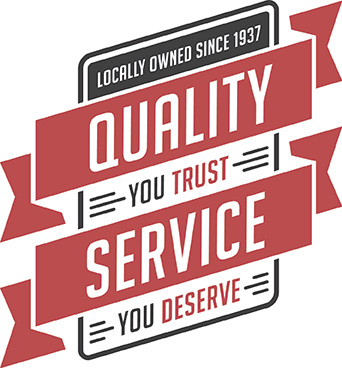A properly working HVAC system is essential for maintaining comfort in your home year-round. However, as your system ages or experiences wear and tear, it may start showing signs of trouble. The big question for many homeowners becomes whether they should schedule an HVAC repair or consider a full system replacement. Knowing the difference between a quick fix and a complete overhaul can save you both time and money.
Ignoring warning signs like uneven temperatures, strange noises, or rising energy bills may lead to more costly issues down the line. This guide will help you understand the key indicators that suggest when an HVAC repair might be enough—and when it’s time to invest in a brand-new system for long-term reliability and comfort.
Unusual Noises or Odors Coming from Your HVAC System
Strange sounds or odd smells coming from your HVAC system are often the first warning signs that something is wrong. Clanking, banging, or squealing noises may point to loose components or worn-out parts that require immediate HVAC repair. Unpleasant odors, such as a musty or burning smell, can signal mold growth, overheating, or even electrical problems.
While some minor issues can be fixed with a quick service call, persistent or worsening symptoms might be a sign that your system is nearing the end of its lifespan. It’s important not to ignore these warning signs, as they can lead to more severe problems if left unaddressed. Scheduling a professional inspection can help determine whether a simple HVAC repair will solve the issue or if a full replacement is the smarter long-term option. Addressing problems early can keep your system running safely and efficiently, especially during extreme temperatures.

Rising Energy Bills Without Increased Usage
If your utility bills are increasing even though your usage habits haven’t changed, your HVAC system may be the culprit. An inefficient system will struggle to maintain comfortable temperatures, causing it to work harder and run longer. This can lead to significantly higher energy consumption over time. In many cases, a timely HVAC repair—such as fixing a clogged filter, leaky duct, or malfunctioning thermostat—can restore your system’s efficiency.
However, if the unit is older and repairs don’t produce noticeable improvements, replacement may be the better option. Constant strain on an outdated system leads to ongoing energy waste, which only drives costs higher. Comparing recent energy bills with previous years can help you spot troubling trends. Whether you need a quick HVAC repair or a full upgrade, acting promptly helps protect your wallet and ensures your heating and cooling system performs reliably all year long.
Age of the HVAC Unit and Its Repair History
The age of your HVAC system plays a crucial role in deciding between HVAC repair and replacement. Most HVAC systems have a lifespan of around 10 to 15 years, depending on maintenance and usage. If your system is reaching or exceeding this age, frequent breakdowns may signal it’s time for a replacement. Repeated HVAC repair calls can add up quickly and often serve only as temporary fixes.
Older systems also lack the energy efficiency and advanced features of newer models, leading to higher utility bills and less consistent performance. By evaluating the unit’s age alongside its repair history, homeowners can make informed decisions about their comfort systems. If you’re constantly dealing with worn-out parts, weak airflow, or refrigerant leaks, replacing the system might be more cost-effective than continuing with piecemeal repairs. Investing in a new unit could offer better efficiency, improved comfort, and fewer service interruptions moving forward.
Inconsistent Heating or Cooling Throughout the Home
One of the most noticeable signs that your HVAC system needs attention is uneven temperature distribution in different rooms. If some areas in your home feel too hot while others remain chilly, your system may not be working properly. This could be due to blocked vents, faulty ductwork, or a failing blower motor—all of which may be addressed with a professional HVAC repair. However, if repairs don’t resolve the issue or if it continues to worsen, your system might no longer be capable of maintaining balanced airflow.
This inconsistency can lead to discomfort, wasted energy, and unnecessary strain on your system. Over time, this imbalance can signal a larger mechanical failure. Determining whether HVAC repair can restore functionality—or whether it’s more practical to replace the entire unit—will depend on the system’s overall condition, age, and performance. Ensuring consistent indoor comfort should always be a top priority for any homeowner.
Frequent Repairs and System Breakdowns
Experiencing frequent HVAC breakdowns is a strong indication that your system may be past its prime. While occasional HVAC repair is normal, calling for service multiple times in a single year can quickly become frustrating and expensive. Continual repairs also point to deeper issues within the system, such as worn-out components or poor internal mechanics. In many cases, the cost of these repairs could rival or even exceed the price of a new unit.
If you’re constantly replacing parts or dealing with recurring problems, it might be time to stop patching the system and start planning for a replacement. A newer unit will offer improved efficiency, better temperature control, and fewer maintenance concerns. Evaluating how much you’ve spent on HVAC repair in recent years will help you decide whether it makes financial sense to continue fixing your system—or to move forward with a more dependable and long-lasting upgrade.
Poor Air Quality and Humidity Control Issues
Your HVAC system does more than heat or cool the air—it also helps regulate indoor air quality and humidity levels. If you’re noticing more dust, increased allergy symptoms, or excess moisture in the air, your HVAC system might not be performing as it should. Dirty filters, leaky ducts, and failing components can compromise air circulation and humidity control, leading to an unhealthy indoor environment.
An HVAC repair may help improve these issues if they’re related to specific, fixable problems. However, older systems may no longer be capable of maintaining ideal air quality, especially if they’ve deteriorated internally. Upgrading to a modern HVAC unit with better filtration and humidity control features can significantly enhance your home’s comfort and health. If poor air quality persists even after professional service, it may be time to replace your current system with one designed to meet today’s higher indoor air standards.

Short Cycling or Constant Running of the System
Short cycling—when your HVAC system turns on and off frequently—is a serious issue that can indicate system malfunction. On the other hand, if the unit seems to run non-stop, it may be struggling to reach the desired temperature. Both problems put excessive stress on the system and can lead to higher energy bills, reduced efficiency, and potential damage to key components.
These symptoms might be addressed with targeted HVAC repair, such as recalibrating the thermostat or replacing a worn relay switch. However, if the behavior persists despite professional repairs, your system may be too old or undersized to handle your home’s heating and cooling demands. Over time, this constant cycling can shorten the lifespan of the entire unit. If you notice this pattern, it’s important to have your system assessed to determine if further HVAC repair is reasonable or if a full replacement is the smarter choice.
Lack of Compatibility with Newer Thermostat Technology
As smart home technology continues to advance, many homeowners are upgrading to programmable or smart thermostats to improve comfort and efficiency. However, some older HVAC systems are not compatible with modern thermostat models. If your system can’t communicate effectively with a newer thermostat, it may limit your ability to optimize energy use or take advantage of scheduling features. In some cases, HVAC repair or retrofitting might allow limited compatibility.
Still, these fixes may not provide full functionality or long-term reliability. Upgrading your entire HVAC system can ensure seamless integration with the latest controls, giving you greater control over your home’s climate and energy use. If you’re interested in smart technology and your current system is holding you back, replacement may be the more practical option. A new unit designed for today’s tech-savvy thermostats can offer both improved performance and smarter energy management throughout the year.
Conclusion
Deciding between HVAC repair and a full system replacement can be challenging, but understanding the warning signs can help you make a smart, cost-effective decision. Whether your system is showing signs of age, inefficiency, or frequent breakdowns, it’s important to act before small issues become major problems.
At Goff Heating & Air Conditioning, we’re committed to helping homeowners in South Bend, Indiana stay comfortable year-round with honest guidance and professional service. If you’re unsure whether your system needs repair or replacement, give us a call at 574-319-1565. Our experienced technicians are here to assess your HVAC system and recommend the best solution tailored to your needs.


